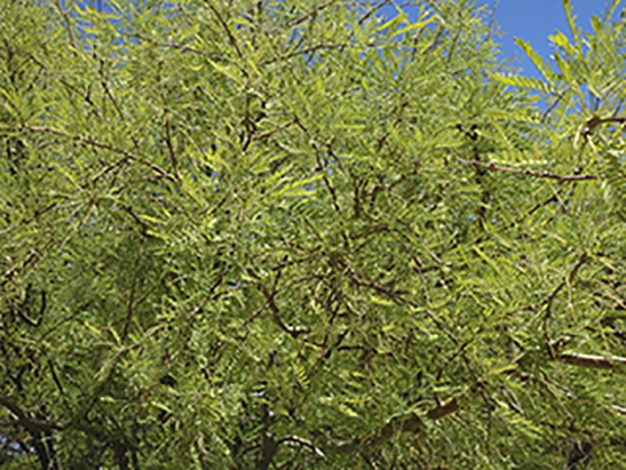Mesquite trees may offer abundant source of clean biofuel, study says

VERNON – As the need grows for biofuels to meet the nation’s energy needs, researchers are looking at feedstocks as a possible new source. A recent Texas A&M AgriLife Research study suggest that mesquite, which grows in abundance in parts of the southwest United States, may qualify.
The study will be published in the journal BioEnergy Research. The AgriLife Research team conducting the study included Seong Park, an economist; Tong Wang, a post-doctoral researcher; and Jim Ansley, a rangeland ecologist, all in Vernon; and Steve Amosson, a Texas A&M AgriLife Extension Service economist in Amarillo.
The study evaluated the economic and greenhouse gas efficiencies of honey mesquite compared to irrigated and dryland sweet sorghum and dryland switchgrass, Park said.
Despite its higher energy density per pound, mesquite production values on a per-land area basis are lower than other feedstocks observed in this comparison and therefore could not replace them entirely, he said. But, mesquite appears to be suitable as a complementary feedstock to contribute to total biomass demand.
“Our results suggest that mesquite lagged slightly behind switchgrass when the biomass and energy efficiency were considered,” Wang said. “However, mesquite appeared superior to all the feedstocks in two categories – greenhouse gas offset efficiency and greenhouse gas use efficiency once land-use change effects were accounted for.”
#TAMUresearch

